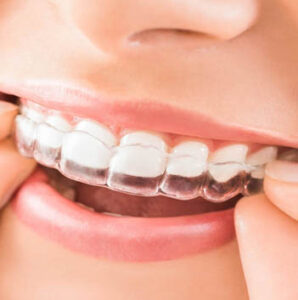6 Teeth Whitening Myths You Should Not Believe

Teeth Whitening is one of the quickest, most affordable and effective procedures to improve your smile. However, many people are hesitant to try it because of some myths about teeth bleaching.
This article will bust 6 of the most common teeth whitening myths so that you can feel confident about getting your smile brightened!
- Oil Pulling
Oil pulling is the practice of swishing edible oils, like coconut, sunflower or sesame, around your mouth to whiten teeth and improve overall health. It is also claimed to kill bad breath, heal bleeding gums and reduce cavities.
The method involves putting a tablespoon of oil, usually coconut, into your mouth and swirling it, sometimes for as long as 20 minutes. This is said to pull toxins and bacteria from your gums and mouth.
Some studies have shown that it may help decrease bacterial count in the mouth and reduce plaque, gingivitis and halitosis (bad breath). However, more research is needed to verify these results.
- Baking Soda
Baking soda (sodium bicarbonate) is cheap, widely available, and has a long list of household uses. It can help baked goods rise, act as an antacid to treat heartburn, and remove stains from teeth.
Its abrasive properties scrub away light stains, and its antibacterial and antimicrobial properties reduce bacterial plaque that contributes to tooth decay. It also soothes a sunburn, and helps relieve itchy, stinging insect bites. The FDA considers sodium bicarbonate safe as a food additive, anticaries active ingredient and general household cleaner. (1, 2).
- Acidic Fruits
Fruits are an essential part of a healthy diet and many are high in vitamin C. They are also a great source of fibre and other nutrients. However, some fruits can cause tooth decay and damage enamel because of their acid content. These foods should be eaten in moderation or washed down with lots of water to minimise the amount of time they come into contact with your teeth and enamel.
Some foods are considered to be acidic based on their pH levels, such as lemon juice. This is not a good choice for daily consumption because it can trigger gastroesophageal reflux disease (GERD). Instead, you should choose whole fruits and vegetables that are low in acidity like bananas and melon.
- Coconut Oil
Coconuts, those sweet smelling drupes associated with chill tropical climes, have suddenly found themselves at the centre of a storm of health claims. They’ve been hailed as one of the great ‘superfoods’ extolled by celebrities and the aisles of health food shops for their healing, cleansing and brain boosting powers.
However, it’s important to remember that coconut oil is a saturated fat and eating too much of it can increase your cholesterol levels and lead to heart disease. You should continue to use unsaturated oils like canola, olive and sunflower for cooking.
- Teeth Whitening Kits
Teeth Whitening Kits are all the rage these days. However, the results they promise are not always realistic.
Most whitening kits contain a bleaching agent such as hydrogen or carbamide peroxide. These chemicals partially penetrate the tooth to remove stains on both the surface and in the deeper layers of the enamel.
However, teeth whitening isn’t a permanent treatment and will eventually stain again due to age, food, and other factors. It is recommended that you have a touch-up with your dentist once or twice a year. This will help to maintain your beautiful smile! Also, make sure to avoid acidic foods and abrasive toothpastes because these can wear away your enamel.
- Laser Teeth Whitening
Many people adore the looks of their favorite celebrities and try to emulate them as much as possible. One of the key things that most fashion icons have is white teeth.
While coconut oil, strawberries, baking soda, and other natural home remedies may make your teeth appear a bit whiter they cannot achieve professional whitening results. These treatments do not contain a strong enough concentration of bleaching chemicals to penetrate the enamel and break down stain molecules.
Fortunately, our cosmetic dentists can safely brighten your smile by removing unwanted stains. To protect your beautiful new white smile, we recommend avoiding dark-colored foods and drinks.







